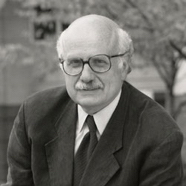The Roberts Court And The Systematic Dismantling Of Our Political System
 The Supreme Court, controlled by a Republican-appointed majority, has played a seminal role in gravely damaging our political system and our democracy.
The Supreme Court, controlled by a Republican-appointed majority, has played a seminal role in gravely damaging our political system and our democracy.
The Court majority has created a corrupt campaign finance system, undermined the nation’s ability to stop voter discrimination and suppression, and all but eliminated the ability to stop extreme partisan and racial gerrymandering.
Today, it also appears increasingly apparent that one or more Justices are slow-walking the Court’s decision in the Jan. 6 case regarding former President Donald Trump and his claim of immunity for actions taken while President. This case involves the first attempted presidential coup in our history and the slow-walking plays right into Trump’s efforts to delay a trial. If elected in November, he will order the case to be dropped.
(Despite the appearance of bias and conflicts, Justices Clarence Thomas and Samuel Alito have refused to recuse themselves from this case.)
This latest performance by the Supreme Court fits the larger pattern of damage the Republican-appointed Court majority has done to our nation’s democracy in recent years, dating to the start of the Chief Justice John Roberts Court in 2005 and Alito’s appointment in 2006.
The Roberts Court is leading a systematic dismantling of our political system.
Here are three areas where our democracy has been undermined by decisions from the Roberts Court majority.
Citizens United
In 2010, in the case Citizens United, the Roberts Court declared unconstitutional the prohibition on corporate spending in federal elections. In reaching its 5-4 decision, the Court wiped out more than 100 years of national policy and two decades of judicial precedent.
The Court’s decision led to a new, corrupt campaign finance system, allowing Super PACs to spend huge, unlimited contributions and “dark money” groups to spend huge, unlimited, and undisclosed amounts.
In 2014, the Court’s 5-4 decision in McCutcheon v. FEC, written by Chief Justice Roberts, doubled down – declaring unconstitutional a longstanding limit on the total amount a single donor can give to all candidates and political committees. This has resulted in wealthy donors giving individual contributions of $800,000+ to candidate joint fundraising committees.
Since Citizens United, influence-seeking billionaires, millionaires, Super PACs and dark money groups have bought their way into the political system with their massive wealth.
If you wondered how former President Trump could brazenly ask oil execs to raise $1 billion for his campaign, as he recently did, look no further than the corruption unleashed by these Court decisions.
It is just the latest example of the unrelenting stranglehold big money has on our elections and democracy.
Voting Rights
The Roberts Court majority has eviscerated voting rights laws and reopened the door to voter discrimination and suppression not seen since the days of Jim Crow.
The Voting Rights Act of 1965 provided historic protections for minority voters. The Act was regularly reauthorized by Congress – the last time in 2006, by an overwhelming bipartisan vote of 98-to-0 in the Senate and 390-to-33 in the House.
Then, in 2013, the 5-4 decision in Shelby County v. Holder, written by Chief Justice Roberts, gutted the critical preclearance provisions of the Act.
Nearly 100 restrictive voting laws, so far, have been passed in the states since that decision reopened the voter discrimination floodgates, according to the Brennan Center.
Gerrymandering
In 2019, Chief Justice Roberts wrote the opinion in Rucho v. Common Cause, the 5-4 decision that held that claims of partisan gerrymandering are political questions that cannot be decided in federal courts. In other words, there are no federal judicial remedies for partisan gerrymandering, no matter how outrageous it is.
This licensed states to enact partisan gerrymandered voter maps that protect the seats of incumbents and the party in power and diminish the impact of voters.
Then last week, in a 6-3 decision written by Justice Alito, the Court concluded in Alexander v. South Carolina NAACP, that racially gerrymandered maps cannot be challenged if they are also drawn to serve goals of partisan gerrymandering. Courts, they continued, must presume that state legislatures are acting in “good faith” if they claim their maps are seeking partisan, not racial, goals.
These two decisions make it exceedingly difficult if not impossible to challenge congressional voting maps on grounds of partisan or racial gerrymandering.
________________
It’s no surprise that decisions that ignore judicial precedent and damage our democracy have helped lead to public opinion about the Court falling to near record lows. Some two-thirds of Americans support term limits for Justices.
The Court has done little to allay the concerns of Americans who consider the Court to be partisan in its decisions and question the integrity of some of its Justices.
The Supreme Court needs public confidence and credibility if it is to play its proper role in our constitutional system.
Today, it has neither.
Fred’s Weekly Note appears on Thursdays in Wertheimer’s Political Report, a Democracy 21 newsletter. Read this week’s and other recent newsletters here. And, subscribe for free here and receive your copy each week via email.